Fishmongers' Hall: Usman Khan was lawfully killed by police
- Published
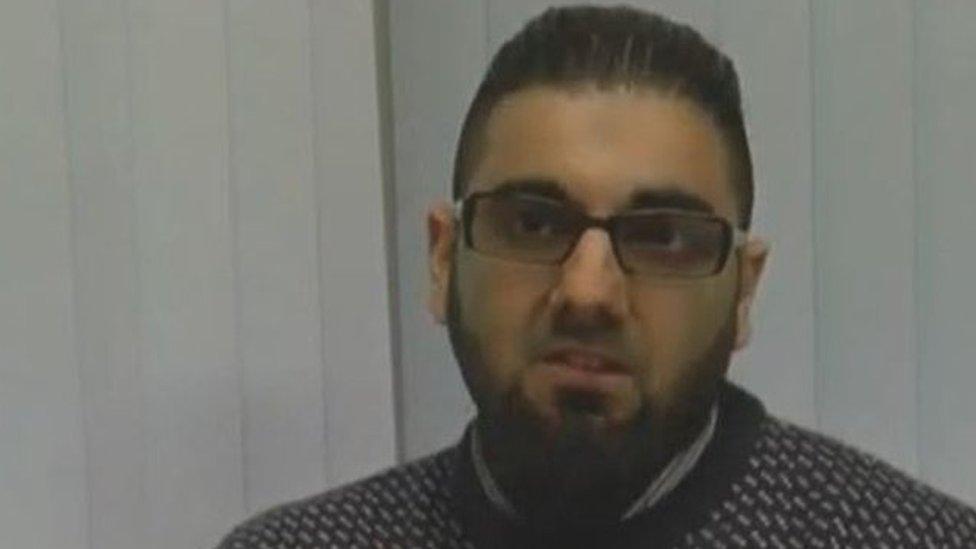
Usman Khan was shot at 20 times on London Bridge
A convicted terrorist who was shot by police following the Fishmongers' Hall attack was lawfully killed, an inquest jury has found.
Usman Khan fatally stabbed Jack Merritt and Saskia Jones during a prisoner rehabilitation conference at the London venue on 29 November 2019.
He was chased from the hall on to London Bridge by three men, before being shot at 20 times by armed police.
The inquest heard police feared Khan might detonate a suicide belt.
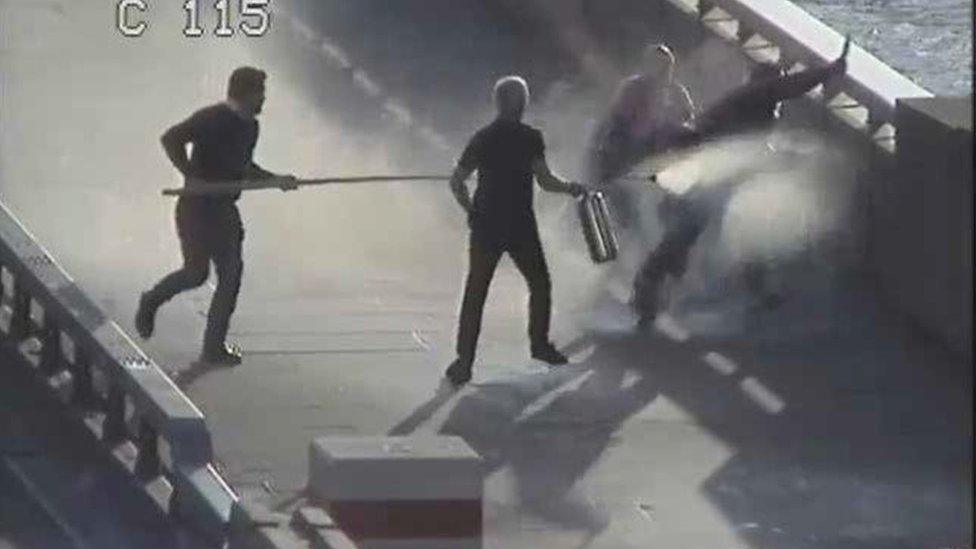
John Crilly, Steve Gallant and Darryn Frost chased Khan on to the bridge before armed police arrived
Six police officers from the Met and City of London fired 20 times at Khan, including 18 shots in a 90-second period.
They had been sanctioned to carry out a so-called "critical shot" amid fears he was about to detonate his device. It turned out to be a fake.
Twelve of the 20 bullets hit Khan. A forensic pathologist gave the cause of death as haemorrhage due to multiple gunshot wounds to the chest and abdomen.
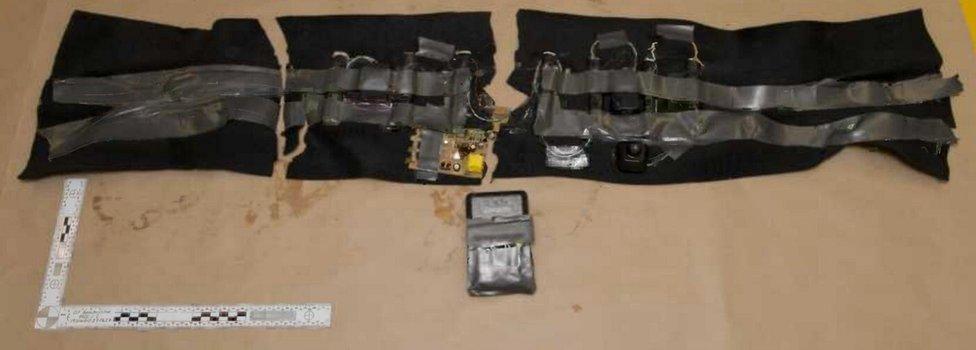
Khan's device had to be treated as viable until proven otherwise, the inquest heard
The post-mortem examination also showed several other injuries, including from a narwhal tusk taken from the wall of Fishmongers' Hall by those who tried to thwart Khan.
One tusk jab had nearly killed him, passing within a centimetre of the carotid artery and jugular vein, the inquest heard.
The first team of firearms officers from the City of London Police had arrived seconds after Khan was pursued out of Fishmongers' Hall to find a mêlée on London Bridge. As they tried to take control of Khan, he said to one of them: "I've got a bomb."
The officer - named only as YX99 in the inquest to protect his identity - then realised Khan had some sort of belt with wires around his waist. As soon as he could do so safely, he opened fire twice.
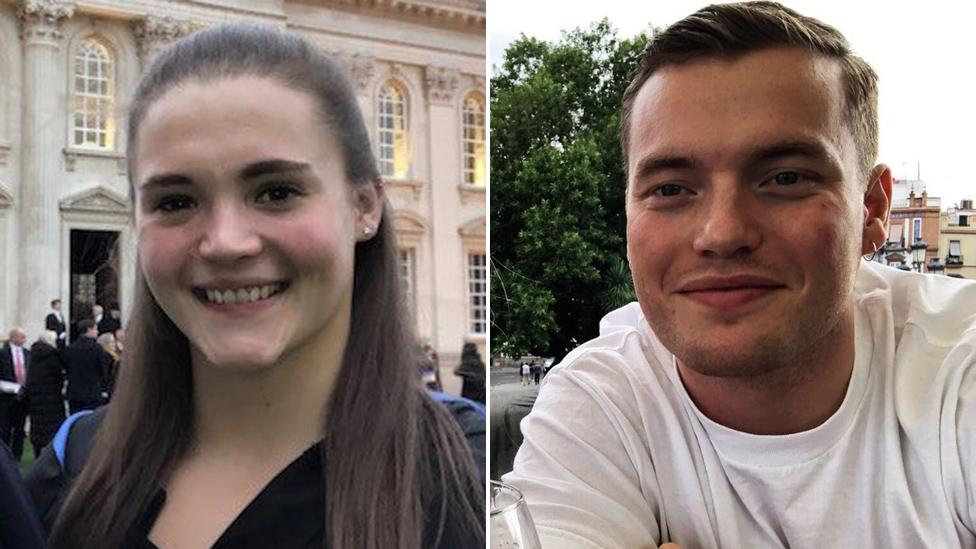
University of Cambridge graduates Saskia Jones and Jack Merritt were unlawfully killed by Usman Khan, a previous inquest jury found
"Literally the first second the shot became available, I took it," YX99 told the inquest, "to save myself and to try and save the people around me."
Jurors at London's Guildhall concluded that Khan had been lawfully killed by anonymous police officers.
They were directed to return a short-form conclusion of lawful killing by coroner Mark Lucraft QC on the grounds that each of the officers who shot Khan believed it was necessary to do so to protect themselves and others.

In a longer, narrative conclusion, the jury said that when the police shot Khan dead, the officers "believed he was trying to find a trigger" on a suicide vest, and that when they opened fire, they feared Khan was moving to detonate the device.
The coroner Mark Lucraft QC praised the work of Ms Jones and Mr Merritt, whose lives were "tragically cut short" by Khan. The standard of first aid performed on the day could not be faulted, he added.
He further praised the efforts of the three people who showed "great bravery" in chasing Khan out of Fishmongers' Hall.
Khan had been released 11 months before the killings despite being viewed as an "influential" inmate who mixed with high-profile terrorists.
A Court of Appeal ruling meant Khan, from Stafford, had to be automatically released on licence from prison, with the Parole Board having no say as to whether he was safe to be freed.
Upon his release, Khan was assessed as being more dangerous than when he went into prison, and there was seen to be an imminent risk of him causing serious harm to the public.
Jack Merritt was killed by Usman Khan, a convicted terrorist still considered dangerous by MI5
Met Police Assistant Commissioner Neil Basu said he would await the coroner's Prevention of Future Deaths report and praised the "heroic" speed and professionalism of his officers.
"But my final words are reserved for Jack and Saskia," he said. "They were two wonderful and talented young people who already achieved so much in their lives, which were tragically cut short.
"My thoughts and the thoughts of everyone in policing are with the friends, families and loved ones of Jack and Saskia, and they are with everyone who was injured, traumatised or affected by this attack."
- Published7 June 2021
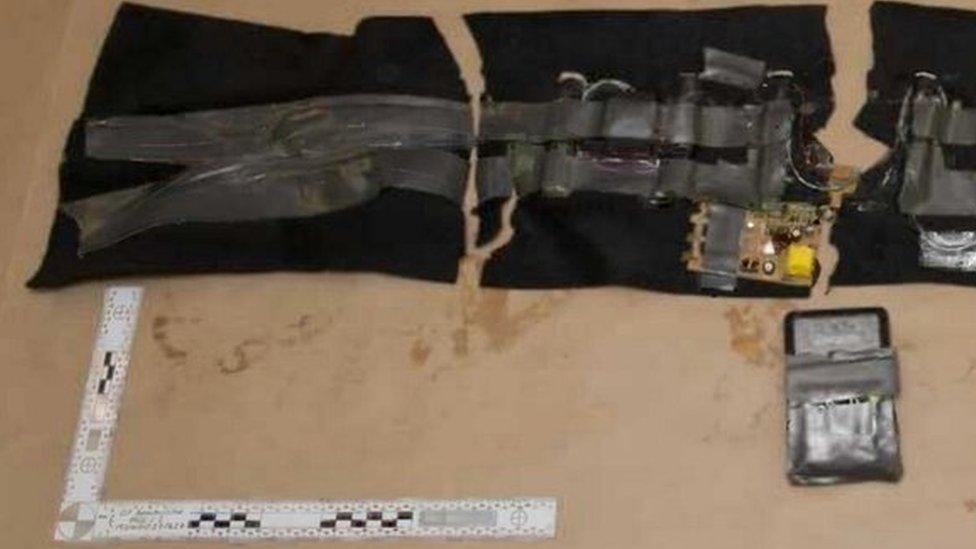
- Published4 June 2021
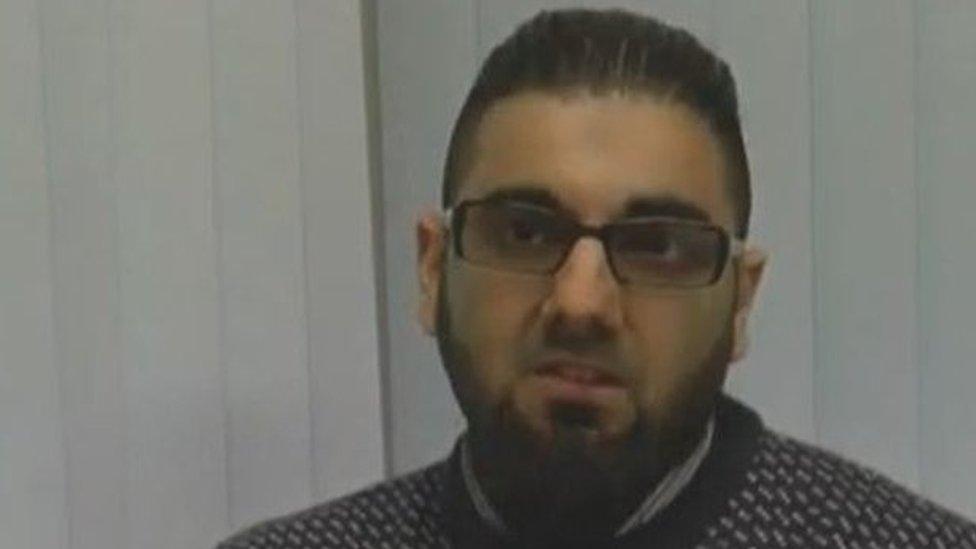
- Published2 June 2021

- Published1 June 2021

- Published28 May 2021
